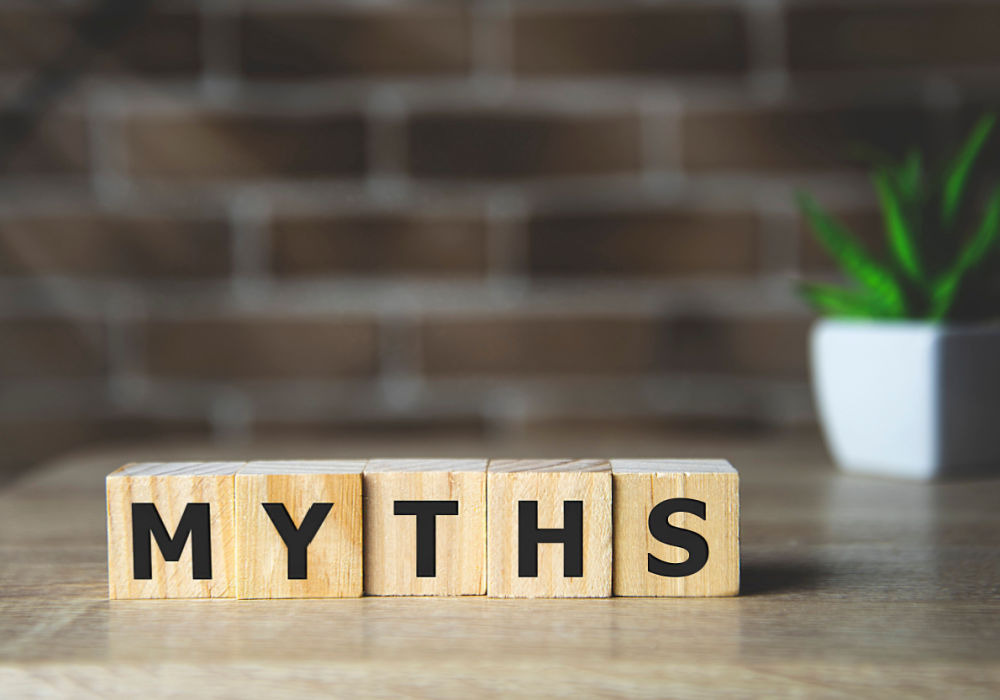
6 Surprising Myths About Personal Debt
Many people believe personal debt myths that could hurt their financial decisions. Misunderstanding how flex loans and other financial tools work can lead to stress or missed opportunities.
In this article, we’ll debunk common myths and explain how options like line of credit loans can actually help you stay on top of your finances.
6 Shocking Personal Debt Myths
Myth #1: All Debt Is Bad
Some people think that debt and taking out a loan or credit reflects poorly on your ability to manage your finances. But as long as you borrow responsibly, debt can be an efficient way to reach your goals.
For example, a student loan improves your ability to get a good job. Mortgage loans can help you invest in a property that increases in value over time and has tax benefits. And, line of credit loans — an alternative personal loans to credit cards — lets you borrow money only as needed.
Myth #2: Debt Lowers Your Credit Score Automatically
Maxing out your credit limit can lower your score. However, avoiding debt altogether will also have a negative effect. Here are some reasons that may help you understand how to improve credit score:
- You cannot establish a credit history if you never take out any loan or credit. You will have “a thin credit file,” meaning lenders will have no concrete basis for your ability to qualify for a loan and pay it off.
- Second, if you already have a low score, the only way to improve your score is to take out a loan and show your creditworthiness by being responsible and making payments on time.
Using tools like a line of credit loan responsibly helps prove you can manage repayments. Over time, this may improve your credit score.
Myth #3: You Can’t Get a Loan If You Already Have Debt
The good news is taking out an emergency personal loan is still possible if you have an existing loan obligation. At Tennessee Title Loans, Inc., we have flexible lending criteria and offer several types of loans for people with debt, a low credit score, or no credit history. These loans include title, payday, and a line of credit loan.

Myth #4: Checking Your Credit Hurts Your Score
Every year, you are entitled to one free credit report from each national credit bureau (Experian, Equifax, and TransUnion). Finance experts encourage you to use that opportunity to monitor your score, find ways to improve it, and check for any errors in the credit report.
Checking your credit report once a year will not make a difference or negatively affect your score because these checks are considered ‘soft’ credit checks. On the other hand, several ‘hard’ credit checks may negatively impact your credit score. These occur when you apply for several loans from different lenders at one time, as these multiple hard credit checks can harm your score.
Myth #5: Having Debt Is Shameful
Some people think that debt is embarrassing because others will feel that they don’t have much money or spend too much.
However, even the wealthiest people and the most prominent organizations use credit and have debts. They may have personal debt like credit cards and car loans or take out house loans to invest in a property. Companies also take out business loans to expand their business. Even governments have debt!
Many people were severely affected by the pandemic and the post-pandemic economy causing debt management to be difficult. Others had personal crises—even millionaires say that there were times when they were flat-out broke. Even if you have a low credit score because of previous financial difficulties, you shouldn’t take it as a sign that you’re a failure.
So, personal debt is simply part of life and nothing to be embarrassed about! You can always manage your debt and bounce back after tough times.
Whether it’s a flex loan, a mortgage, or a car loan, what matters is how you manage it. There’s no shame in using credit to navigate emergencies or improve your situation.
Myth #6: There Are Only Two Kinds Of Personal Debt
When people think of personal debt, they imagine credit cards or loans where you borrow a fixed amount.
However, there is a third option: line of credit loans. They work very similarly to credit cards because you have a maximum credit card limit and can borrow (instead of “charge”) just enough for what you need at any time.
You only have to pay interest for what you borrow, and when you complete the payments, the loan “resets,” and you can borrow again.
Lines of credit loans are convenient because you always have a safety net, especially when you are worried about debt management and how to improve credit score. If ever you have a financial emergency or need to cover an unexpected expense, you can access cash without starting a new loan application.

How Flex Loans Help You Manage Debt
Tennessee Title Loans, Inc. has one of the most convenient processes for line of credit loans. You can have a maximum credit limit of up to $4,000 in much less time than it would take to apply for credit cards or traditional bank loans. Here are some key reasons why these loans are quick and easy options for life’s unexpected difficulties:
- Online inquiry. You can get a free loan consultation from the convenience of your home.
- Simple requirements. You must present your latest pay slip or proof of income, a lien-free vehicle title, your ID, and a vehicle for inspection.
- No credit score requirements. You can apply even if you have bad credit or do not have a lengthy credit history.
- Fast approval process. The in-store visit can take as little as thirty minutes, and once you’re approved, you can get the money either that day or, if it’s after the cut-off time, the next business day.
Apply online or visit one of our local offices to start the process today.
Ready to Bust the Myths and Take Control?
Just fill out the form to get a call back from one of our trusted loan representatives. They can explain more about your loan options and eliminate some personal debt myths you may have believed to be true.
While on the phone schedule an appointment to meet at one of our many Tennessee Title Loans, Inc. locations to get the loan process started and settle your cash emergency as soon as possible.
Note: The content provided in this article is only for informational purposes, and you should contact your financial advisor about your specific financial situation.